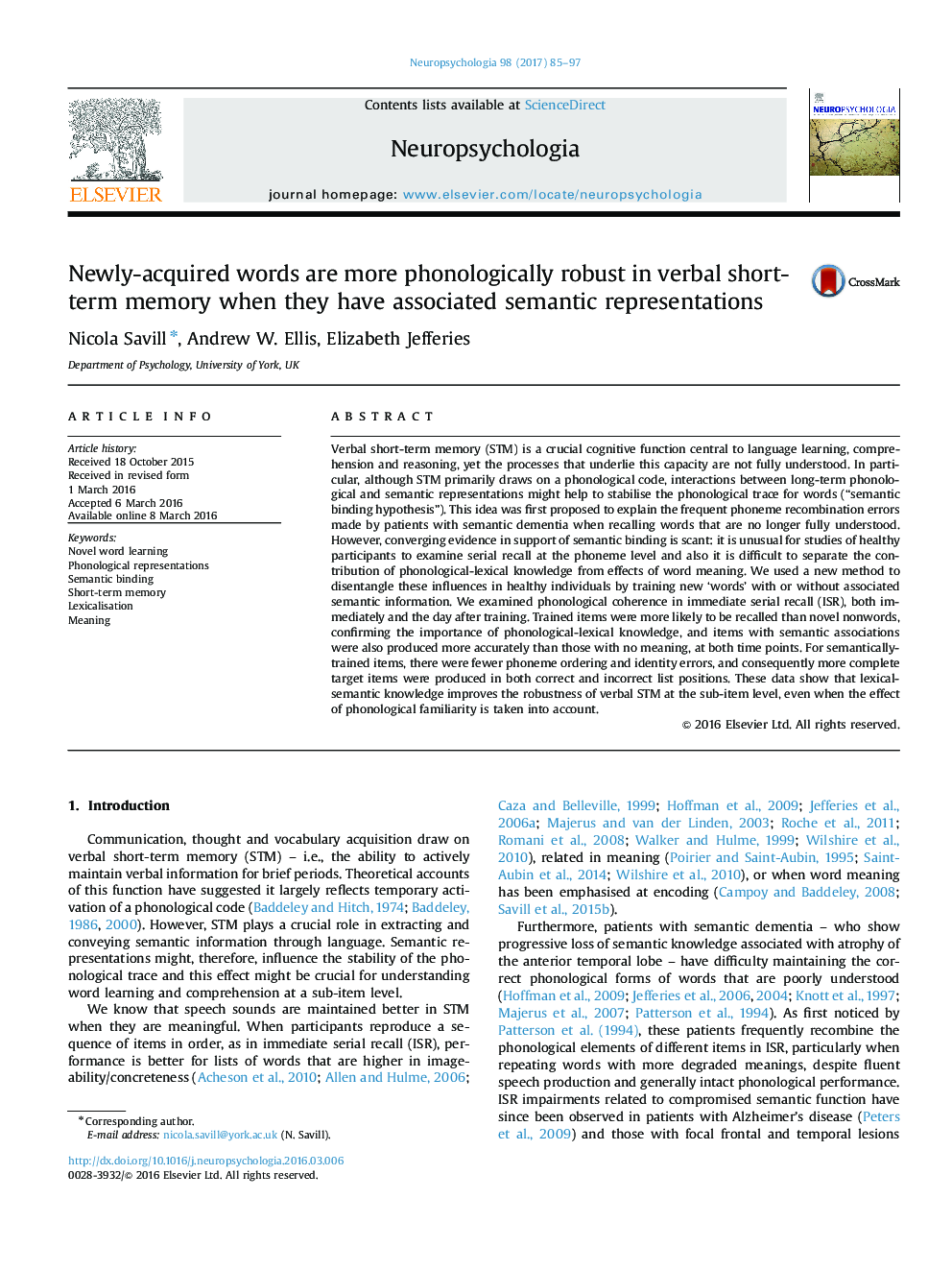| کد مقاله | کد نشریه | سال انتشار | مقاله انگلیسی | نسخه تمام متن |
|---|---|---|---|---|
| 5045273 | 1475557 | 2017 | 13 صفحه PDF | دانلود رایگان |
- New words trained with and without semantic features tested in short term memory.
- Method equated phonological exposure across these conditions.
- Previously learned semantic information benefited immediate serial recall.
- Words trained with meaning were more phonologically stable than meaningless items.
- Indicates that meaning influences phonological stability beyond lexical familiarity.
Verbal short-term memory (STM) is a crucial cognitive function central to language learning, comprehension and reasoning, yet the processes that underlie this capacity are not fully understood. In particular, although STM primarily draws on a phonological code, interactions between long-term phonological and semantic representations might help to stabilise the phonological trace for words (“semantic binding hypothesis”). This idea was first proposed to explain the frequent phoneme recombination errors made by patients with semantic dementia when recalling words that are no longer fully understood. However, converging evidence in support of semantic binding is scant: it is unusual for studies of healthy participants to examine serial recall at the phoneme level and also it is difficult to separate the contribution of phonological-lexical knowledge from effects of word meaning. We used a new method to disentangle these influences in healthy individuals by training new 'words' with or without associated semantic information. We examined phonological coherence in immediate serial recall (ISR), both immediately and the day after training. Trained items were more likely to be recalled than novel nonwords, confirming the importance of phonological-lexical knowledge, and items with semantic associations were also produced more accurately than those with no meaning, at both time points. For semantically-trained items, there were fewer phoneme ordering and identity errors, and consequently more complete target items were produced in both correct and incorrect list positions. These data show that lexical-semantic knowledge improves the robustness of verbal STM at the sub-item level, even when the effect of phonological familiarity is taken into account.
Journal: Neuropsychologia - Volume 98, April 2017, Pages 85-97
